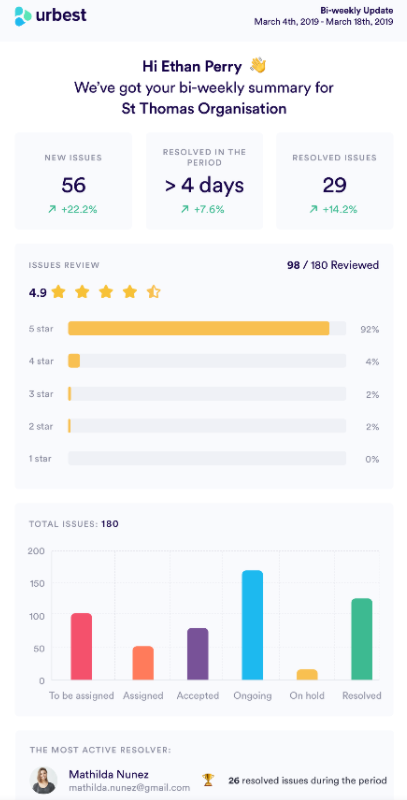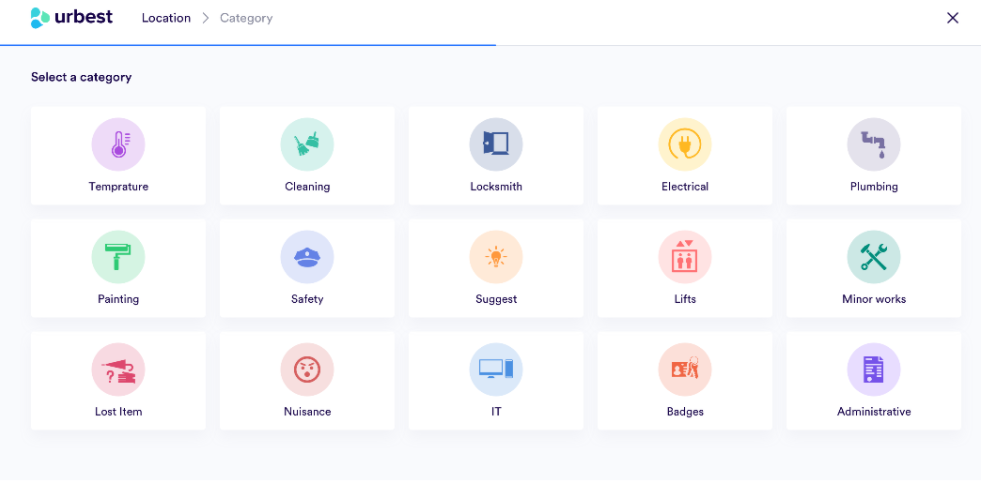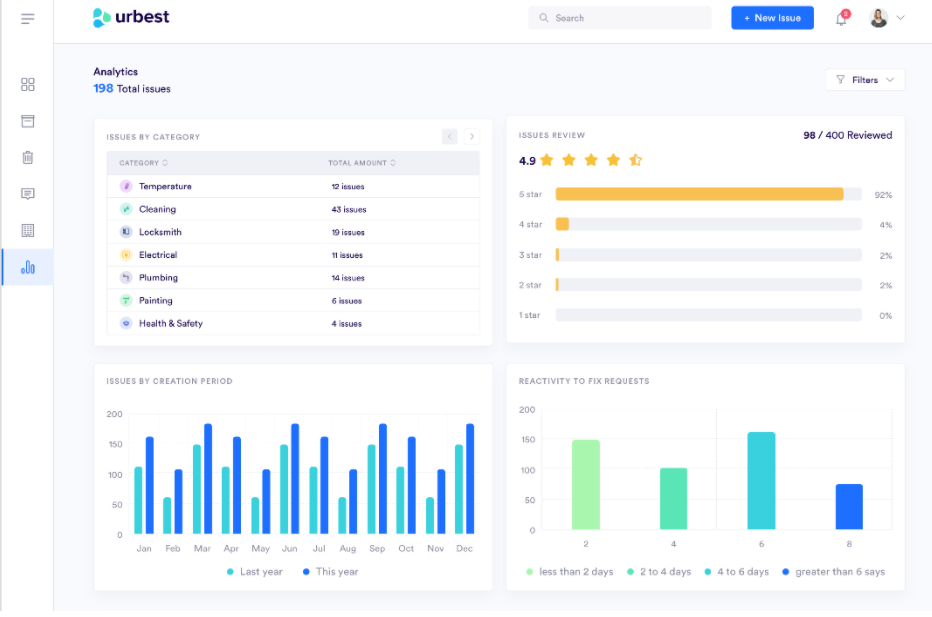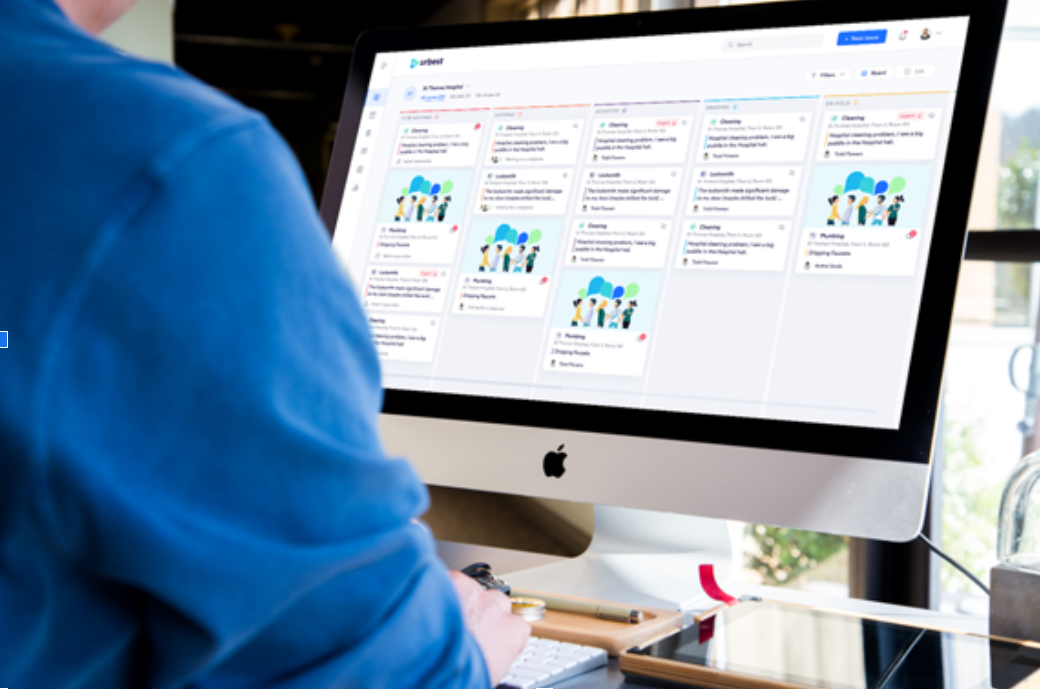An interview with CEO Hugo Gervais about the collaborative software for facilities, maintenance and services.
Can you present Urbest in a few words?
Urbest is a collaborative platform in the form of a mobile application and a website. It allows collaborative processing of maintenance interventions, works and more generally any service requiring coordination of issuers, managers and workers.
Our goal is to save time and responsiveness to operational teams, in order to ultimately improve user satisfaction.
Historically, we have embarked on the management of urban space and found after a few months that the volume of intervention to be processed in real estate was significantly greater.
We have therefore declined our categories to adapt to the requirements of the buildings. Today, offices, residences, schools and even healthcare establishments use Urbest. Each organization appropriates Urbest in its own way.
How does Urbest improve user experience (compared to other startups, for instance) ?
Before working on Urbest, I worked for a big company. There I could see the type of solutions used by thousands of technicians and that made me realize that ergonomics were often overlooked. Our goal at Urbest is to change that.
Compared to alternatives, Urbest can help save many hidden costs :
- setup costs which can easily reach € 50.000
- training costs
- maintenance or specific development costs
Beyond the costs, our users praise the ease of use which will create frequent use and a greater volume over the months. The simplicity may seem trivial, but it’s what makes us choose one search engine or messaging system over another every day.
In short, Urbest reduces the time spent on less exciting tasks, such as finding information or following up on people. And in the end, operational staff are more productive and get to the end of their tasks faster.

How did you respond to the Covid-19 pandemic ?
Truth be told, we weren’t sure which angle to take at first. But after several months, I see that the ability of an organization to structure its workload is decisive to remain reactive in the face of the unexpected.
As one senior official said, the problems seen during the pandemic were mainly related to a lack of coordination and responsiveness. The work overload related to Covid-19 accentuated the gaps between well-processed structures and those that were more manual.
From this point of view, Urbest provides a solution to create on-demand services, e.g. : establishment of specific signage, installation of hand sanitiser dispensers or other new services. Obviously you can’t predict in advance all the services that you will need to offer because of a pandemic or other unforeseen events. However, an organization can increase its resilience with a flexible task follow-up like Urbest. It will allow to withstand shocks in the event of new needs.

What are the next steps for Urbest ?
We’ve started here in May and in November, we will expand to Brazil. Brazil is a young country and one of the biggest consumers of mobile applications in the world. Despite the distance, we have established local partnerships to distribute our product there.
From a technical point of view, we have covered the topics of planned tasks or checklists which enables us to offer a full range of tasks in Facility Management.
Our next improvements will consist in making the ergonomics even more fluid. Because I am convinced that the players who will remain in this market will be those who will have the least friction in use (a bit like with videoconferences).
Finally, every month we set up new partnerships with architects, design offices, startups, hardware companies, in order to provide better service.
Before we conclude, would you like to add anything ?
Our ability to have European players in the future depends on the liveliness of the market to test and to work with startups such as Proptech Lab.
The Chinese or American markets make it possible to start with a critical mass of users who feed startups with user feedbacks and turnover.
For me, what makes the difference is the ability to see projects as important even if they are not urgent in order to stay on top. Otherwise, inaction or slowness will lead to the use of solutions which have been designed elsewhere, with different mentalities, other legal constraints and which will not benefit the European economic fabric.
In a nutshell : test !

For more information, click here.
Liuba Diederich

